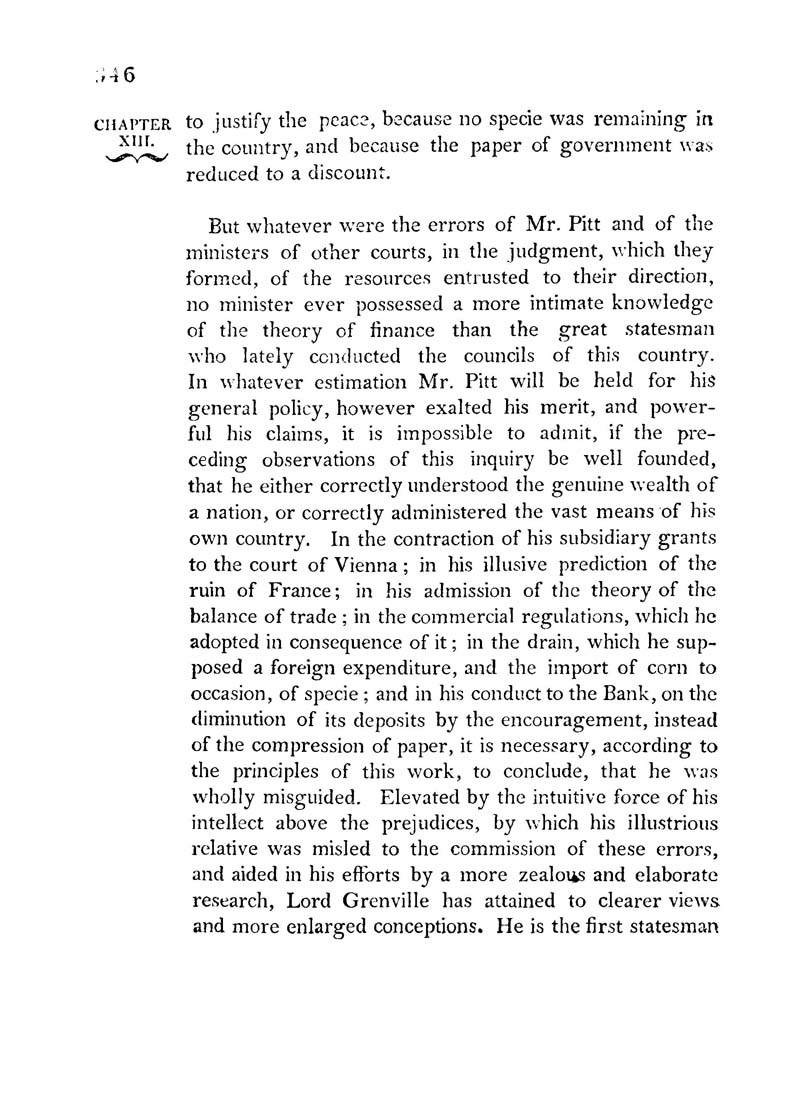:.46
chapter to justify the peace, because no specie was remaining in
^'^^' the country, and because the paper of government was
reduced to a discount.
But whatever w^ere the errors of Mr. Pitt and of the
ministers of other courts, in the judgment, which they
formed, of the resources entrusted to their direction,
no minister ever possessed a more intimate knowledge
of the theory of finance than the great statesman
who lately conducted the councils of this country.
In whatever estimation Mr. Pitt will be held for his
general pohcy, however exalted his merit, and power¬
ful his claims, it is impossible to admit, if the pre¬
ceding observations of this inquiry be well founded,
that he either correctly understood the genuine wealth of
a nation, or correctly administered the vast means of his
own country. In the contraction of his subsidiary grants
to the court of Vienna; in his illusive prediction of the
ruin of France; in his admission of the theory of the
balance of trade ; in the commercial regulations, whicli he
adopted in consequence of it; in the drain, which he sup¬
posed a foreign expenditure, and the import of corn to
occasion, of specie ; and in his conduct to the Bank, on the
diminution of its deposits by the encouragement, instead
of the compression of paper, it is necessary, according to
the principles of this work, to conclude, that he was
wholly misguided. Elevated by the intuitive force of his
intellect above the prejudices, by which his illustrious
relative was misled to the commission of these errors,
and aided in his efforts by a more zealous and elaborate
research. Lord Grenville has attained to clearer views
and more enlarged conceptions. He is the first statesman
|








